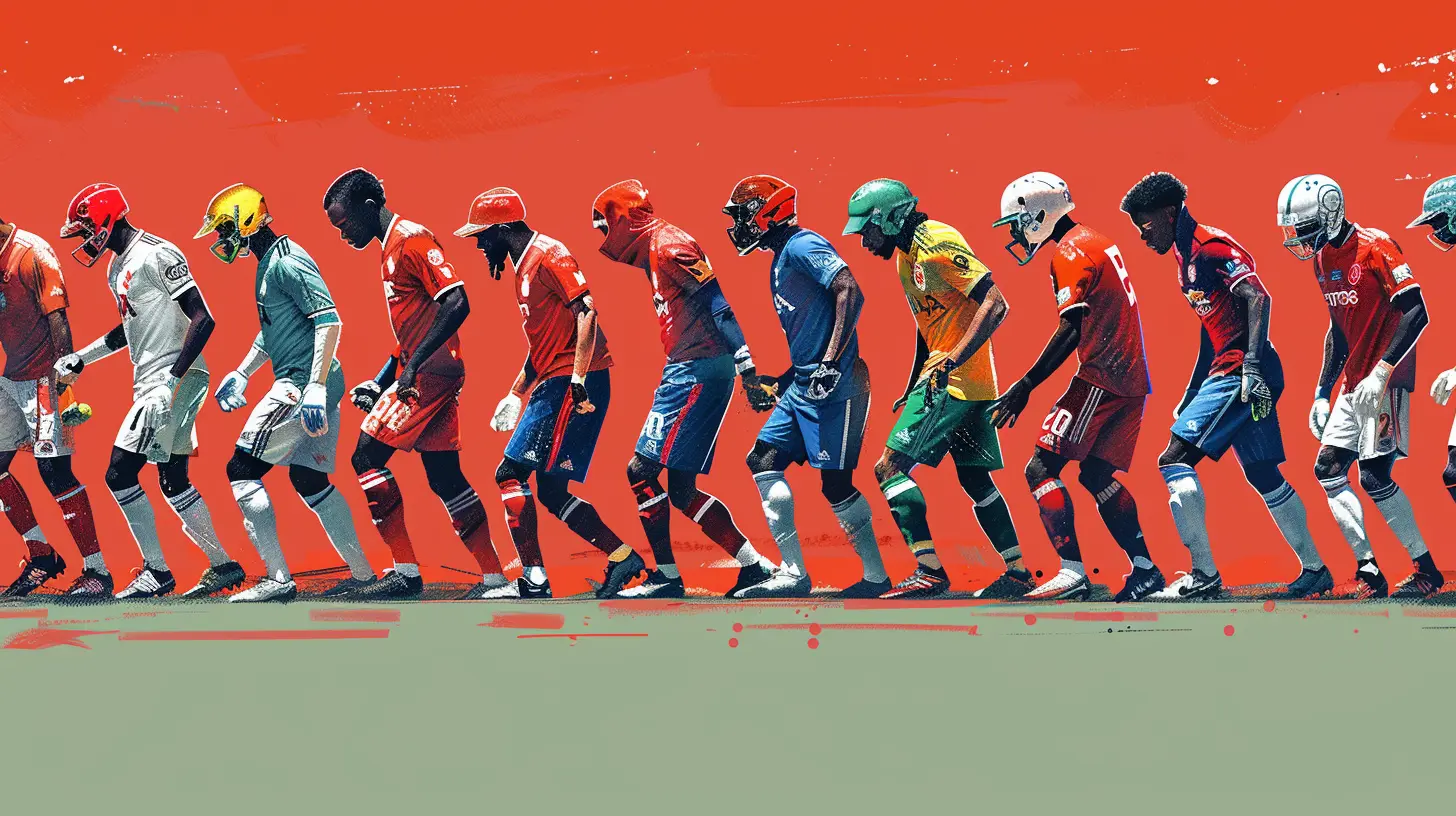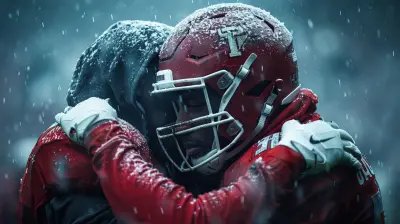The Role of Signing Periods in Contract Negotiations
18 November 2025
When you think about contract negotiations in sports, your mind probably jumps straight to the big-money deals, star players, and headline-grabbing signings. It's easy to get swept up in the excitement — after all, who doesn’t love a blockbuster trade or a surprise team switch right before the season starts? But there's a behind-the-scenes element that often quietly shapes these moments more than we realize: signing periods.
Yep, those not-so-flashy windows of time where players, agents, and teams are locked in discussions, hammering out the fine print of million-dollar contracts. They're like the opening act before the main show, setting the tempo and tone of what’s to come. So, let’s roll up our sleeves and dive into the nitty-gritty of the role of signing periods in contract negotiations — and why they’re way more important than they might appear at first glance.
What Are Signing Periods, Anyway?
Let’s not assume everyone’s an insider. A signing period is a designated window of time when teams and athletes are officially allowed to finalize contracts. These vary by sport, league, and even player status (think rookies versus veterans).In leagues like the NFL, NBA, MLB, or even international sports like soccer and rugby, signing periods control the chessboard. They're not just administrative checkpoints — they’re strategic windows of opportunity. Miss that window? Better luck next season.
Think of It Like a Limited-Time Flash Sale
Yup. Imagine your favorite sneaker store has a 72-hour sale. You’ve got to show up, find your size, and hit checkout before the clock runs out. Signing periods are a lot like that — but instead of sneakers, it's million-dollar contracts and future legacies hanging in the balance.
Why Signing Periods Exist
You might be wondering: "Why even have a designated period for signings? Why not let teams and players negotiate whenever they want?" Good question.Here’s the thing — sports leagues are ecosystems that rely on balance, fairness, and structure. Signing periods help:
- Create a level playing field: Every team gets the same opportunity to make moves.
- Prevent tampering and chaos: With defined start and end dates, behind-the-scenes, unauthorized conversations are less likely (in theory!).
- Build fan excitement: Let’s be honest — fans love having specific dates to look forward to. Free agency day has practically become a holiday.
Without signing periods, the off-season would be one big, confusing negotiation blur. These structured windows bring order to what could otherwise be an all-out bidding war every day of the year.
How Signing Periods Affect Contract Negotiations
Now let’s dig into the meaty part — the actual impact signing periods have on negotiations. This is where things start heating up.1. Deadlines Drive Decisions
Ask any procrastinator — nothing lights a fire like a looming deadline. Signing periods put pressure on both sides of the negotiation table.For players, there’s a fear of being left unsigned. For teams? Miss out on top talent, and you're stuck scraping the bottom of the talent barrel. These deadlines push both parties to come to terms, often forcing compromises that might not happen in an open-ended negotiation.
2. Leverage Swings Like a Pendulum
The timing within a signing period can dramatically shift who holds the power. At the start, big-name players call the shots. Teams line up to make offers. But as the period winds down, leverage often flips. Unwanted or overlooked players find themselves accepting less-than-ideal deals just to stay in the game.It’s a strategic dance where time is either your best friend or your worst enemy.
3. Agents Strategize Within the Window
Player agents (the real MVPs behind the scenes) live and breathe signing periods. They know when to hold out and when to push for the close. An agent might purposely wait for the market to settle, hoping competitors drop out and increase their client’s value.They play the long game — because in negotiation, sometimes patience truly pays off.
The Psychological Game Behind Signing Periods
Signing periods aren't just about paperwork and deadlines — they mess with your head, too.Pressure Equals Performance — or Panic
Imagine being a player on the fringe, watching the clock tick down with no offer in sight. The emotional toll is real. Anxiety, doubt, and urgency creep in. On the flip side, securing a contract early brings peace of mind and confidence heading into the season.This mental tug-of-war affects performance, contract expectations, and decision-making. It's not just business — it's personal.
Teams Use Timing as a Tool
Teams aren't just watching game film; they’re playing mind games. A franchise might leak interest in a player just to raise the bidding war — or ghost a free agent until the last minute to drive down the deal value. Cold-blooded? Maybe. Effective? Definitely.Signing Periods Across Different Sports
Here’s where it gets really interesting — not all signing periods are created equal. Each sport has its own rhythm and rules.NFL: Organized Chaos
The NFL free agency period is practically a sprint. Teams use the one-week legal tampering period to prepare offers, and once the flag drops, phone lines explode. Contracts get signed within hours.Timing is everything here. Most marquee players are snapped up in the first 48 hours. Wait too long? You might get left in the dust.
NBA: The Domino Effect
In the NBA, one superstar decision can create a massive ripple effect. Remember when LeBron took his talents to Miami? That move singlehandedly reshaped half the league.Front offices sit on their hands early in the signing period, waiting for key names to make a move before pulling the trigger.
MLB: The Waiting Game
Baseball's signing periods are more of a slow burn. MLB negotiations can drag into months, especially with agents like Scott Boras, who specialize in patience and leverage.Here, timing isn’t about days — it’s about playing long ball, literally and figuratively.
Soccer: Transfer Windows & Madness
International soccer runs on transfer windows. These biannual signing periods are full of drama — player swaps, massive fees, and sometimes, last-minute moves that steal the headlines.It’s like reality TV meets high-stakes finance.
How Signing Periods Affect Rookies vs. Veterans
There's also a divide in how signing periods impact different types of players.Rookies: Structured But Stressful
Rookies often face stricter signing periods, especially in the NFL and NBA where rookie contracts have set scales and deadlines. There's not much room for negotiation — but miss the window, and you're risking your shot entirely.Veterans: More Freedom, But Less Security
Veterans typically have more flexibility in negotiations, but the market can be unforgiving. If you're not a top-tier talent, teams might ghost you until the very last day — and that one-year, vet-minimum deal might be all that’s left.Ouch.
The Role of Signing Periods in Building Team Chemistry
Here’s something that doesn’t get talked about enough: timing affects team unity. The sooner a team can finalize its roster, the more time players have to build chemistry, learn playbooks, and establish roles.Late signings can be disruptive. Imagine showing up at the tail end of camp, trying to bond with teammates who’ve already been grinding together for weeks. It’s like crashing a party after midnight — doable, but awkward.
The Business Side: Salary Caps and Budgeting
Don’t forget the financial puzzle. Signing periods force teams to manage salary caps and budget limits with precision.Waiting too long? You might blow your cap space on a panic buy. Move too early? You risk overpaying when the market might have cooled. Signing periods push front offices to be savvy, strategic, and sometimes, ruthlessly pragmatic.
So, Are Signing Periods a Blessing or a Curse?
Honestly, a bit of both.They bring order to chaos, help maintain parity, and give fans something to look forward to. But they also add pressure, intensify power struggles, and can leave folks out in the cold if they misjudge timing.
At the end of the day, signing periods are like the ticking clock in a reality competition show. They make the stakes feel higher, the decisions more dramatic, and the outcomes more intense.
And that’s exactly why we can’t look away.
Final Thoughts
If you’ve made it this far, hopefully you’ve got a deeper appreciation for what signing periods really mean in the grand scheme of sports contract negotiations. They're the unsung heroes (or villains, depending on how you play them) in the off-season drama that shapes teams, careers, and sometimes entire leagues.So, next time a big signing goes down, you’ll know it wasn’t just about talent — it was about timing, leverage, psychology, and a ticking clock that drives every deal behind the scenes.
all images in this post were generated using AI tools
Category:
Sports ContractsAuthor:

Ruben McCloud
Discussion
rate this article
1 comments
Shelby McInnes
This article beautifully captures the intricate dance between signing periods and contract negotiations. It highlights how timing can influence player futures and team strategies, reminding us all of the human stories behind the stats.
December 8, 2025 at 1:16 PM

Ruben McCloud
Thank you for your thoughtful insight! I'm glad you found the article resonant and reflective of the human element in sports negotiations.


